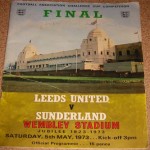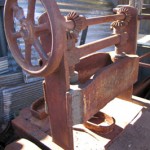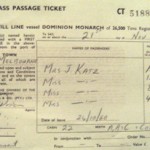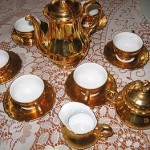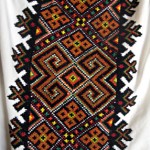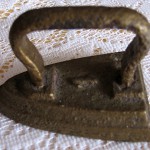(nee Daczko)
Estonian
Tallinn, Estonia
Naples, Italy on 11 June 1949
Sydney on 8 July 1949
A few months at Parkes; two years at Scheyville
Marsden Park, north-western Sydney
My mother worked on a farm near Scheyville and my father was sent to Port Kembla. Mum also did kitchen and sewing work at Scheyville.
My mother worked at a factory in Windsor and St Leonards and my father was at the Riverstone meatworks and HMAS Narimba. I later trained as a nurse.
I was born in Talinn, the capital of Estonia and my sister was born in Germany in Furth.
It was wartime (Second World War) and my father worked as a master shoemaker for German officers. He was put onto a ship moving the men to an internment centre. The Americans came in, bombed the ship, my father swam back to Germany. [Later] he got all of us and we escaped onto a train. There was bombing on the train.
We ended up going to Bagnoli Displaced Persons’ camp in Italy, waiting for transportation to some other safe haven. We were given the choice of America or Australia. My father decided Australia because it was a “new” country.
We had a couple of suitcases and a great big box. All of my father’s implements for his trade were brought out here but sadly he was never able to set up his own business. The agreement was we work for Australia [the Government] for two years. Professions weren’t considered – you were coming out as a labourer. Lots of people went to the Snowy Mountains and Port Kembla steelworks.
We came to Australia on the Bundy. My sister was very small and I was five years old. When we boarded women were asked if they were pregnant and Mum said, “no, no, no!”. That was in July; she had John in December (1949). She needed to hide the pregnancy – it was cold so she put on coats.
We came via the Suez Canel and I have the most distinct feeling – I get the same smell when I go to a sea port, it’s something that was etched in my mind. I can still see the people in little, low boats, sending out baskets of things for us to buy. We were too poor to buy anything.
Lots of people were very seasick. My mum would take us on deck so we had fresh air but the smell of seasickness [and] people vomiting was really horrible. We were in crowded conditions with blankets separating the women and the men. My mum used to love to smoke but she couldn’t afford cigarettes. We used to walk on the deck and Mum would say, “quick there’s a cigarette butt, pick it up!” We’d unroll it and she’d make a cigarette for herself!
We landed at Sydney and went to Parkes (migrant accommodation in NSW’s central-west) where John was born. We were coming to Australia and [we thought] it’s going to be really, really hot [so] we threw out many of our winter things. When we arrived here we nearly died [and] wore ALL the dresses we had!
We were at Parkes for a while, not long. And then Scheyville Holding Centre. My mother was devastated – it was bush everywhere. She wanted the money to get a place of her own and move out so she went to work on the farm, picking potatoes. Her back was so bad, she’d never done [labour work] before; Mum worked in a macaroni factory [in Estonia]. Mum [also] used to work in the kitchen at Scheyville – she’d try her hand at anything.
My father was away quite a lot [at both Parkes and Scheyville] – he lived in Port Kembla for work. He’d have to travel by train and catch transport from the station to Scheyville or sometimes walked [the long distance to the station].
An elderly Estonian lady used to look after us. After a while my sister and I went to school at Scheyville so she was mainly looking after John.
[The hut at Scheyville] was small, it was very cold. The family resorted to getting a kerosene heater [although] we weren’t supposed to have heating in the rooms. The heater happened to catch the curtains and caught alight. My father pulled the curtains down and he got burnt hands. Luckily nothing worse happened.
Mum lived with us. We had two rooms because there were three kids. Mrs Jeremieczick’s husband was [also] away. The women put all the kids into one room and in the second room, to make extra money, [were] sewing dresses, clothes. All night. I can remember my mother working late, you could hear the two sewing machines whirring away. This fellow brought the materials in and used to take them away and get them sold. It was cheap labour really.
I had my [Catholic] Holy Communion [at Scheyville]. My mother was Lutheran but Mrs Jeremieczick was Catholic so she helped my mum make my dress.
We always used to call people by their surnames, we never called them by their Christian names. It was always “Mrs Such-and-such” or “Mr Such-and-Such”. The people I met there are wonderful. We remained friends [through] the Estonian school, the Estonian society.
We left Scheyville in November 1951. When I first came here [Marsden Park near Scheyville] there were no street lights, the roads were terrible. I cried. It was absolutely black. Silence – you couldn’t hear anything. There was hardly anybody in this area. Somebody owned [the land] but nobody had ever lived here. An Australian man made a killing on [selling land to] the “new Australians” but we were prepared to pay to get our freedom and move to our own place.
When we first came to the property we had no water so we had to walk three acres – my neighbours had a tap. So for washing, bathing, cooking we had to walk and carry water; that was really the pits.
Mum started a garden and planted the vegetable patch by hand. We couldn’t afford to buy [food so] we [also] had our own chickens and ducks. We had an outside dunny which initially my father buried the contents on the land.
We knew one Estonian lady up the road who had a poultry farm and she’d give us milk. She’d let us help make the butter by using the churn. We kept [the butter] in salt water so it wouldn’t melt, we didn’t have a refrigerator. Later on when we got a bit more money we got an ice block. They used to bring this 12 inch square block of ice from the meatworks in Riverstone. The fellow used to come every morning and put it on top of our ice chest.
The [neighbours] to the left and right were on the same ship as us; I look at [us] as “The Baltic Strip”! [Our home] was a one-room place with a little annexe in the front and we cooked there. At Christmas Mrs Blumanis (neighbour from Latvia) would come over – they didn’t have an oven – and we’d bake hams together.
Dad worked at the Riverstone meatworks but he didn’t like it – it was heavy work and slaughtering animals. It just wasn’t him. He was a shoemaker and a peaceful man. He didn’t like any form of violence so even when we had chickens we used to get someone to kill [them]!
My mum used to go to St Leonards to work in a factory which meant she’d leave about 4.30am to walk to the station. We had so much fog in winter it didn’t lift until after lunch on many days.
At home [we] spoke Estonian and [had] Estonian things around us. My father brought over this piano accordion from Germany; in the Baltics people do like the Piakordia. I’m the only one who plays. I’ll keep it for our grandchildren.
To hear to Anne Marie Birdsey play Du Du Liebst In Herzen (a German folk song) on her Piakordia click the play button below:
Audio clip: Adobe Flash Player (version 9 or above) is required to play this audio clip. Download the latest version here. You also need to have JavaScript enabled in your browser.
My mother lost total contact with her family until one day she decided to write. She got a letter back because some woman knew where the rest of the family moved to. It was a like a new lease in life for her to hear from them.
I organised a 50 year reunion in 1999 for those who came out on our ship. I think it’s important to know what your roots are. Because I was so young I felt really “Aussie” compared to our older neighbours and I thought let’s get them all together before it gets too old to remember.
I wanted to see what people felt about Australia. Everybody said it was the best move, we have so many opportunities here. It is the best country in the world. I’ve been back to Estonia a few times and feel an affinity but feel Australian because my loyalties lie here. It was nice to hear other people feel the same.
We got a copy of the ship’s manifest which was really wonderful. You have everyone’s names – the Konrad family, Ilse and John, who were very famous Olympians [were on board].
You have where [passengers] were born, their birthdates, their occupation. It didn’t matter whether you went to university, the men were put down as labourers because that is what Australia wanted and what people were willing to do – two years labouring.
I know some from European countries did suffer quite a lot from depression. A couple of the people did commit suicide. Life was really very stressful and different to Europe. I think you did need to be hardy to put up with things.
I took Mrs Jeremieczick to [the reunion at Scheyville National Park in April 2005 which] brought back a lot of memories. I remembered the mess hall and a few of the dormitories; it was so ghost-like [yet] nice to go back. I was listening to people, a couple of women were “going on” – well perhaps things were bad, but to me it didn’t seem that way. To me we lived there, went to school, ate, played!
Interviewed by:
Andrea Fernandes, NSW Migration Heritage Centre
13 March 2006
With assistance from Scheyville National Park


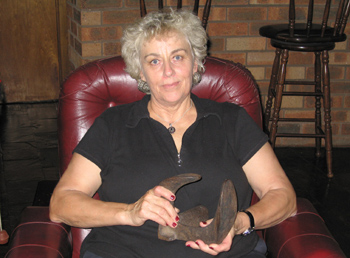
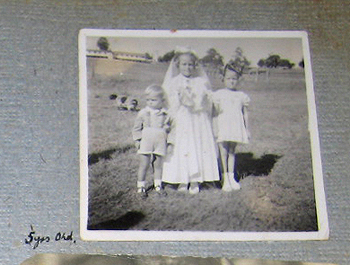

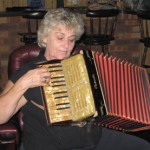
!["[During World War Two] my father worked as a master shoemaker for German officers and then the Americans came in."](../../../cms/wp-content/uploads/2008/09/birdsey-documents-150x150.jpg)
!["I organised a 50 year reunion in 1999 for those on our ship to get them all together before [they] get too old to remember."](../../../cms/wp-content/uploads/2008/09/birdsey-invitation-150x150.jpg)
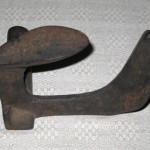
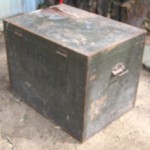
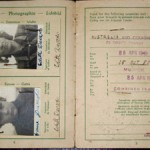
!["You have everyone's names, where [passengers] were born, their birthdates, their occupation."](../../../cms/wp-content/uploads/2008/09/birdsey-manifest-150x150.jpg)
